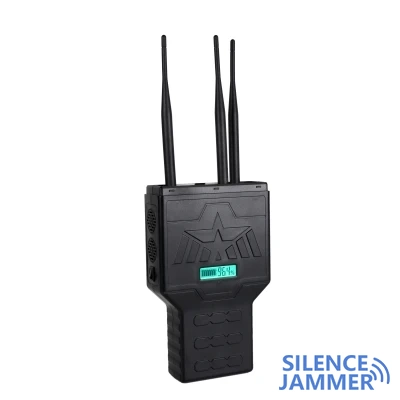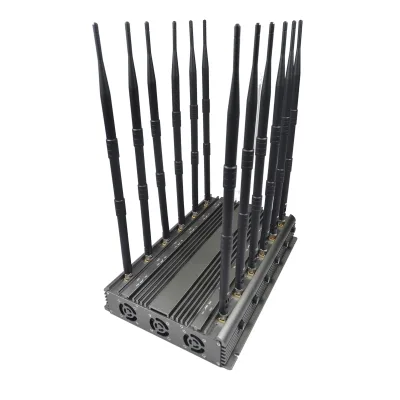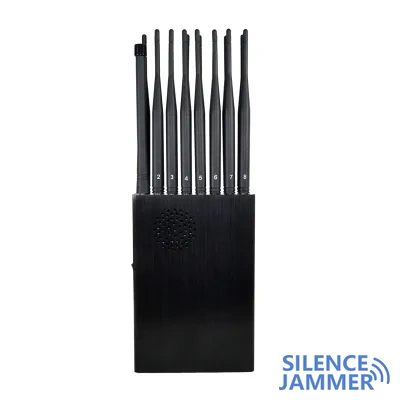In Rajasthan, India, the private use of mobile phones by prisoners has become one of the main challenges for prison management. Although expensive signal jammers have been installed in some central prisons, their effect has been unsatisfactory. In order to further curb the use of mobile phones by prisoners, the prison department has proposed to centrally deploy cellphone signal jammer devices in a few prisons and seek additional financial support.
Jammer failure raises security risks
It is reported that signal jammer blockers worth about 201.2 million rupees have been installed in prisons in Rajasthan, aimed at preventing prisoners from communicating through mobile phones. However, these devices have not worked as expected. In order to improve the jamming effect, the prison administration has decided to centrally transfer all 57 signal jammer equipments to three prisons in Bikaner, Bharatpur and Ajmer to achieve a stronger signal shielding effect.

A letter sent to the Ministry of Home Affairs mentioned that these signal blockers are inefficient in their current installation locations, allowing prisoners to use their mobile phones for communication, which not only increases security risks, but also makes it difficult for the administration to fully control the use of mobile phones in prisons. The letter requested approval to redeploy the blocker jammers to effectively curb illegal communications by prisoners.
Mobile phone smuggling issues and security threats
Between January and May this year, the police seized a total of 241 mobile phones in seven central prisons, with Jaipur, Jodhpur and Bikaner being the worst areas for mobile phone smuggling. Prisoners use mobile phones to keep in touch with the outside world and even continue to participate in illegal activities. For example, the gang leader Lawrence Bishnoi in Bharatpur Prison coordinated gang activities, including arranging funds and guns, through social media such as WhatsApp and Facebook, which greatly threatened public safety.

More worryingly, prisoners in Jodhpur Prison have posted videos on social media showing the loose management and security loopholes of the prison. This incident has attracted great public attention and raised questions about how prisoners in prisons obtain and use mobile phones. The prison department immediately stepped up inspections inside the prison, but this also exposed management loopholes.
High equipment maintenance costs and resource allocation issues
- In order to solve the problem of equipment failure, the prison department also applied for additional budget support, including 72.01 million rupees for phone jammer transfer costs, 1.12 million rupees for the construction of new transmission towers, and an annual maintenance budget of 188 million rupees. However, some people are skeptical about continuing to invest in such equipment. Prison Police Director General Bhupendra Singh pointed out that signal blocker jammers need to be installed as close to the signal source in the prison as possible to achieve better shielding effects. The current installation locations are too scattered, resulting in poor shielding effects.
- At the same time, jammer device manufacturer Bharat Electricals Limited (BEL) was questioned for the ineffectiveness of the equipment. The prison department protested to BEL, asking the company to solve the jammer performance problem and recover some improper expenses under the instructions of the Jaipur High Court. BEL responded that they had no right to make statements on equipment issues and suggested contacting its headquarters for further information.
- The prison department said that the illegal use of cell phones by prisoners has become a systemic problem, with cell phones being brought into prisons through a variety of channels, and some even thrown directly into prisons from outside the prison walls. In addition, limited prison manpower also makes equipment inspection and security management more difficult. Although some measures have been taken to curb the ways in which prisoners can obtain cell phones, loopholes still exist.
In the future, the prison department plans to strengthen cell phone signal shielding by introducing more efficient jamming equipment and centralized deployment. In addition, prison management is also exploring other methods, such as increasing daily inspections and strengthening prison security facilities, to comprehensively combat the problem of prisoners using cell phones. The Prison Administration hopes that through these measures, the prison administration will fundamentally solve the communication problems of prisoners and ensure the safety and order of prisons.




